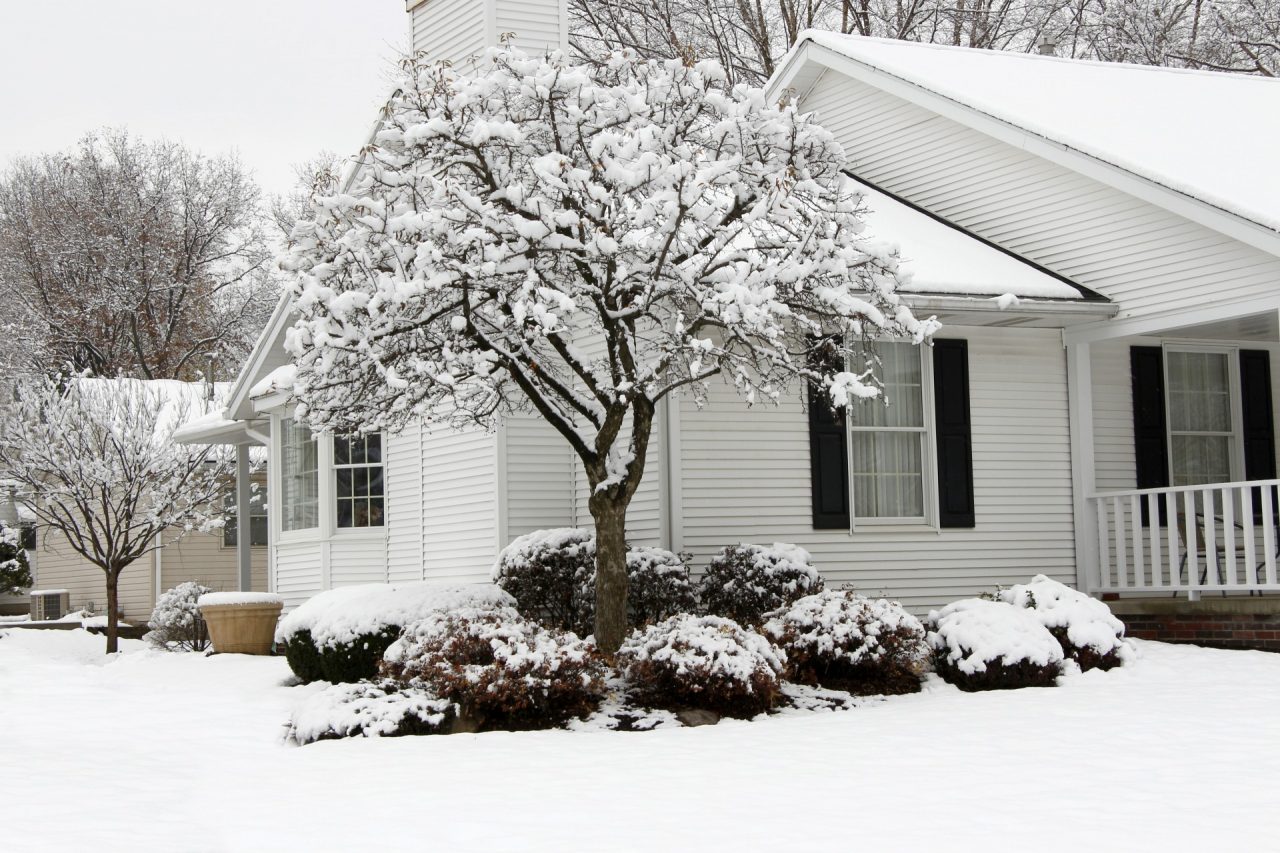As a homeowner, you take pride in maintaining your investment and protecting it from outside risks. Among these risks, winter weather presents some of the most significant challenges—challenges that may even lead to substantial property damage. In fact, winter storm losses in the U.S. average $1.2 billion per year.
Depending on the size and location of your home, winter weather risks can vary. However, there are several concerns homeowners must account for if they are to protect their investment from the elements. Among other things, severe winter weather can lead to things like frozen pipes and serious liability concerns.
Frozen Pipes
One of the messiest and most costly home repairs is fixing a burst, frozen pipe. Water expands as it freezes and puts significant pressure on the metal or plastic pipes that hold it. If you fail to take the proper precautions, your pipes can easily fail during a cold spell. Keep in mind, pipes that run along exterior walls in the home with minimal insulation tend to freeze more easily.
Water from a burst pipe can cause damage to carpeting, short out electrical appliances, and ruin furniture. Luckily, there are several ways to protect your home:
· Keep the heat in your house at a minimum of 50° F. Try to keep your thermostat set at the same temperature during the day and night.
· Keep interior doors open. This allows heat from the rest of your house to spread, keeping your pipes warm.
· Seal any cracks and holes found near your pipes. This can help keep cold air out of your home.
· Add extra insulation to your pipes. Experts recommend fitting your pipes with foam rubber or fiberglass sleeves.
· Wrap pipes in heat tape or thermostatically controlled heat cables.
· Disconnect outdoor items such as hoses and faucets.
· Keep your garage door closed if there is a water supply in there.
· Pay attention to weather forecasts. During bouts of extreme cold, allow faucets to drip slightly. This can alleviate pressure in the piping system.
· Ensure your home has a backup generator. Power outages are one of the most common causes of frozen pipes. What is more, without power, your water supply may also be shut off.
· Consider hiring a central monitoring company. These organizations monitor the temperature of your home remotely and can provide a notification if the interior temperature of your home drops too low.
· Do not set your thermostat lower than 55° F when going on vacation. Ask someone to periodically check the temperature in your home while you are away.
If you turn on a faucet and no water or only a trickle comes out, your pipes may be frozen. If that is the case, experts suggest turning off the main water valve and keeping the faucet on. Apply heat to the pipe by using an electric heating pad, hairdryer, or portable space heater, or by wrapping the pipe in towels soaked in hot water. You should apply heat until you regain water pressure. If this does not solve the problem, contact a licensed plumber to inspect your pipes.
Liability Concerns to Consider
Extreme winter weather not only has the potential to damage your home, but it can also create serious liability concerns. During the winter season, walkways, stairs, and driveways can become slip, trip, and fall hazards as snow falls and ice forms. Should someone injure themselves on your property, you could be held liable for medical costs as well as any other damages, particularly if you did not take the appropriate precautions following adverse weather.
To adequately protect yourself from such liability concerns, consider doing the following:
Shovel and De-Ice: It is very common for someone to slip on ice during the winter and injure themselves. To keep you and members of the public safe, ensure driveways, stairs, and sidewalks around your property are clear of ice and snow. To create an adequate walkway, be sure to clear all or as much snow away as possible. Once you have removed snow, use anti-ice material on walkways and stairs to make them less slippery. Commonly used products include commercial-grade salt and sand. You should always shovel and remove ice after a storm in a timely manner.
Inspect your stairs: During the winter, a slip or fall on your outdoor stairs could lead to serious injuries. In addition to clearing snow and ice from your stairs, it is important to inspect them and ensure they are in good condition and equipped with handrails. In addition, stairs should be free of tripping hazards and cracks. Handrails should be installed by a professional to ensure they are sturdy and built to code. For additional protection, provide adequate exterior lighting around stairs.
Trim your trees: You may not realize it, but snow and ice accumulation can cause tree branches to snap and fall. When this happens, the branches can strike passersby or property below, potentially causing significant injury or property damage. To prevent this from happening, trim your trees back, focusing on any branches that overhang your driveway, walkways, or your neighbors’ property.
Keeping in mind the above tips can go a long way toward reducing your liability risks. It may also be a good idea to speak with your trusted Sentinel advisor, as we can provide even more tips and suggestions to reduce your exposures.
Weather-related risks can affect your home unexpectedly, often leading to major property damage, costly repairs, and liability concerns. While you cannot always predict when a pipe will burst or how heavy snow will affect the integrity of your roof, the proper insurance can go a long way toward protecting your finances.
To learn more about the specific protections available, it is important to work with a qualified insurance broker. Contact the Private Client Services team at Sentinel today to learn more.



